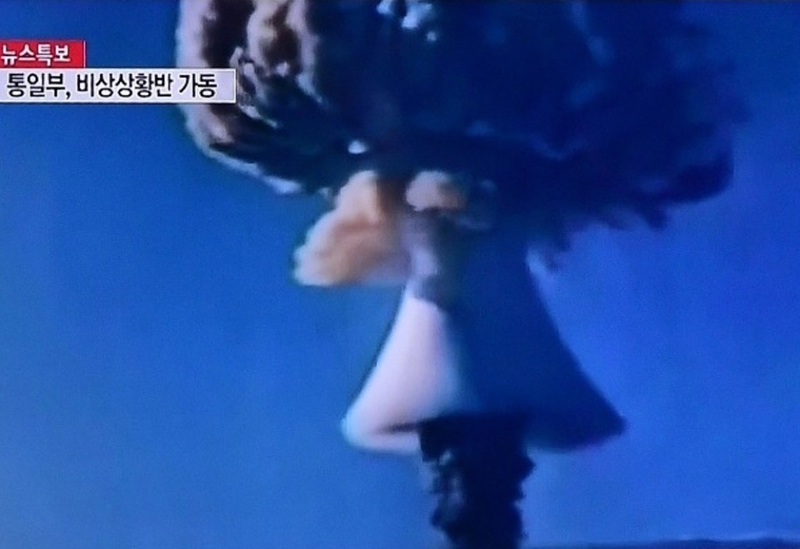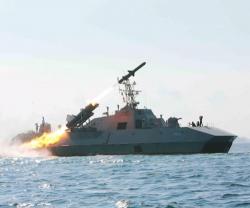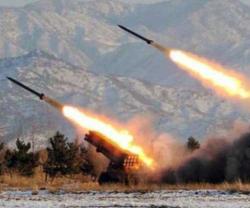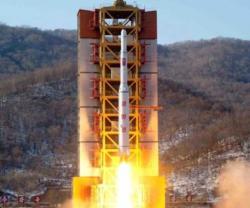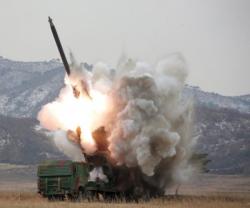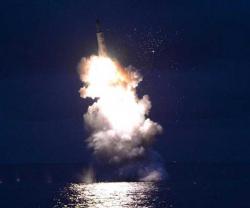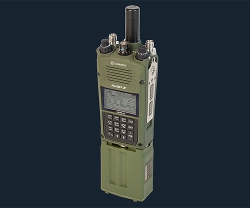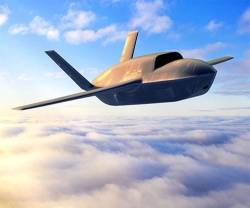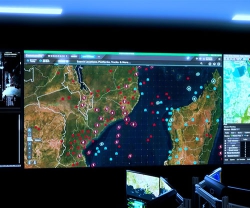North Korea said it conducted a powerful hydrogen bomb test Wednesday, a defiant and surprising move that, if confirmed, would be a huge jump in Pyongyang's quest to improve its still-limited nuclear arsenal, the Associated Press reported.
South Korea's spy agency and outside nuclear experts cast strong doubt, however, saying the estimated explosive yield from North Korea’s fourth nuclear explosion was much smaller than what even a failed H-bomb detonation would produce.
The doubts didn’t stop jubilation and pride in Pyongyang. A North Korean television anchor, reading a typically propaganda-heavy statement, said a test of a “miniaturized” hydrogen bomb had been a “perfect success” that elevated the country's “nuclear might to the next level.” State media later crowed that its “H-bomb of justice” lets it stand firm against U.S. aggression.
A large crowd celebrated in front of Pyongyang’s main train station as the announcement was read on a big video screen, with people taking videos or photos of the screen on their mobile phones and applauding and cheering.
In Seoul and elsewhere there was high-level worry. South Korean President Park Geun-hye ordered her military to bolster its combined defense posture with U.S. forces and called the test a “grave provocation” and “an act that threatens our lives and future.” Japanese Prime Minister Shinzo Abe said, “We absolutely cannot allow this.”
Washington and nuclear experts have been skeptical about past North Korean claims about H-bombs, which are much more powerful and much more difficult to make, than atomic bombs. A confirmed test would further worsen already abysmal relations between Pyongyang and its neighbors and lead to a strong push for tougher sanctions on North Korea at the United Nations. The Security Council quickly announced an emergency meeting.
A successful H-bomb test would be a big new step for the North. Fusion is the main principle behind the hydrogen bomb, which can be hundreds of times more powerful than atomic bombs that use fission. In a hydrogen bomb, radiation from a nuclear fission explosion sets off a fusion reaction responsible for a powerful blast and radioactivity.
A South Korean lawmaker said the country's spy agency told him in a private briefing that Pyongyang may not have conducted an H-bomb test given the relatively small size of the seismic wave reported.
An estimated explosive yield of 6.0 kilotons and a quake with a magnitude of 4.8 (the U.S. reported 5.1) were detected, lawmaker Lee Cheol Woo said the National Intelligence Service told him. (; Photo: AFP)

